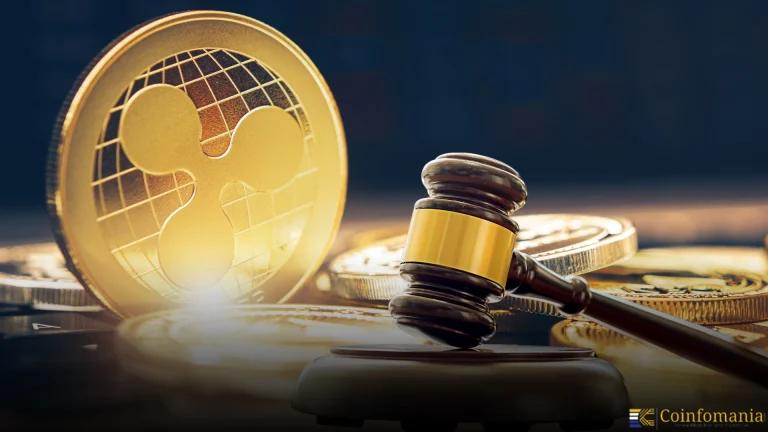Thailand’s Cryptocurrency Regulation Landscape
With a rare combination of financial caution and forward-thinking regulation, Thailand is quietly becoming a crypto heavyweight in Southeast Asia. Since 2018, the country has walked the line between innovation and oversight, implementing clear legal frameworks, fostering the growth of digital assets, and protecting investors while not stifling progress. While other jurisdictions are still trying […]

With a rare combination of financial caution and forward-thinking regulation, Thailand is quietly becoming a crypto heavyweight in Southeast Asia. Since 2018, the country has walked the line between innovation and oversight, implementing clear legal frameworks, fostering the growth of digital assets, and protecting investors while not stifling progress. While other jurisdictions are still trying to figure out how to regulate crypto, Thailand has been deliberate, structured and is a standout player in the region’s digital asset scene.
Thailand’s Regulatory Philosophy: Innovation with Caution
The focus of Thailand on cryptocurrency is on treating it as an investing asset as opposed to a channel of exchange. The Bank of Thailand (BOT) is firm that crypto can’t be used to make payments because of volatility and to disrupt the financial system.
Still, the government is in favour of blockchain innovation and trade activity within controlled conditions. There is also an understanding that the regulatory landscape is supervised at least by the Securities and Exchange Commission (SEC) BOT, and Anti Money Laundering Office (AMLO), which jointly govern the rules and regulations.
Evolution of Crypto Regulation in Thailand
Until 2014, Thailand started developing its crypto regulations when the BOT acknowledged the crypto coins at large but noted that these virtual coins were unregulated. A turning point was the digital asset businesses regulatory framework or the Royal Decree on Digital Asset Businesses (2018), defining a digital asset and giving a legal framework for the trading and issuance of digital assets as well as their exchange.
As such, Thailand became one of the first Asian nations to design a detailed and enforceable crypto regulatory framework.
Key milestones include:
- 2018: Licensing of crypto exchanges and brokers under SEC oversight.
- 2020: Development of the BOT’s central bank digital currency (CBDC) project.
- Launch of a digital asset regulatory sandbox, removal of caps on investment in asset backed tokens.
In these changes, Thailand’s changing attitude — from being initially skeptical to more structured innovation, is reflected.
Regulatory Authorities and Legal Requirements
- Every aspect of Thailand’s crypto regulation is implemented by several government bodies, each with a different role.
- SEC (Securities and Exchange Commission): Oversees the licensing and operation of exchanges, brokers, and ICO issuers.
- Regulation of use of stablecoins and regulation of payment systems are controlled by BOT (Bank of Thailand).
- AMLO is specialized in ensuring that crypto entities comply with AML, KYC obligations.
Licensing and Compliance
In Thailand, any company looking to function as a digital asset business must then register with the SEC. Requirements include:
- Minimum capital (e.g., 50 million THB for exchanges).
- Strong internal controls and IT security.
- AML/KYC protocols per the Anti-Money Laundering Act B.E. 2542.
Taxation of Digital Assets
According to the personal income tax system in Thailand, cryptocurrency gains are taxed, and the rates rise up to 35% according to income bracket. Although there are certain VAT exemptions (e.g. of licensed exchanges), individuals and businesses must be mindful to keep and report gains appropriately.
Crypto Asset Regulation: ICOs, STOs, and Beyond
ICOs need the approval of the SEC on disclosures, prospectus filings, and investor protections. Security Token Offerings (STOs) that involve real-world assets such as real estate are also regulated.
NFTs are sort of a gray area with current law that could be classified as either intellectual property or securities, depending on how they function.
Thailand’s CBDC and Blockchain Push
The Central Bank Digital currency (CBDC) development in Thailand is a standout among its crypto evolution. Through projects like:
- In 2018 the Project Inthanon was conducted – examining interbank settlements.
- Testing retail CBDC use (2022–2023) Project Bang Khun Phrom.
- Cross border CBDC payments with Hong Kong, China and the UAE – mBridge Project.
The Thai efforts for CBDC could completely transform the structure of international money transfers and create a forward leap in terms of financial inclusion.
Fostering Innovation Through Sandboxes
In 2024, the SEC launched the Digital Asset Regulatory Sandbox which enables innovative services to be tested by startups and established companies in flexible, temporary rules. It offers real time testing of crypto DeFi, tokenization of payment platforms among others with minimal investor risk.
Adoption and Industry Growth
- There is growing adoption of cryptocurrency in Thailand
- 47% of crypto-aware individuals reportedly own digital assets.
- Blockchain is gaining adoption in the financial institutions.
However, because of regulatory restrictions, crypto payments are accepted by some businesses cautiously. Also, public sentiment is mostly optimistic, but the government insists on education and risk awareness.
Challenges in the Thai Crypto Space
However, Thailand’s progressiveness is subject to certain regulatory and operational hurdles:
- Regulatory Ambiguities: Especially around newer digital assets like NFTs or DeFi protocols.
- It is also characterized as more difficult to enforce: Blockchain is decentralized and pseudonymous so it is harder to make sure illegitimate activities aren’t taking place.
- Cross Border Issues: Thai residents exchange money on foreign crypto exchanges and this creates a challenge which the government tries to handle by blocking unauthorized platforms.
Looking Ahead: Thailand’s Crypto Future
The crypto is forecast to take further steps towards the integration into the Thai financial system by following global frameworks, such as the EU’s MiCA Regulation. Key future directions include:
- Broader CBDC implementation.
- Enhanced consumer protections.
- A focus on sustainable crypto practices.
This could make Thailand a model for harmonized digital asset regulation that is friendly to innovation, the progress of which may also influence other Southeast Asian nations.
Frequently Asked Questions (FAQs)
1. Can I use cryptocurrency to purchase goods and services in Thailand?
Technically, no. It is discouraged by the BOT due to price volatility and systemic risk. Crypto is seen as an investment asset and not legal tender.
2. Are crypto gains taxable in Thailand?
Yes. Gains are taxed as personal income tax up to 35% depending on your income bracket. There are some VAT exemptions for regulated transactions.
3. How to obtain a crypto business license in Thailand?
You have to register with the SEC, meet capital thresholds, and set up AML/KYC protocols.
4. Is Thailand developing a CBDC?
Yes. The country is developing a Retail CBDC and is a member of the mBridge cross-border payment initiative.
5. What is the 2024 regulatory sandbox?
The SEC has created what is essentially a testing ground for crypto projects like DeFi platforms and some asset tokenization pilots, allowing them to have this relaxed ruleset.
6. Are stablecoins legal in Thailand?
BOT regulation allows them, but they cannot be used for payments unless approved. The type of backing (fiat, crypto, algorithmic) determines oversight.
7. Is it possible to trade on foreign exchanges from Thailand?
It’s a legal gray zone. The government blocks access to unregistered platforms to protect users from unregulated risks and advises against it.
8. Are NFTs regulated under Thai law?
At the moment, there is no specific NFT law. NFTs can be regarded as intellectual property or securities depending on their use.
9. What are the Thai regulations on DeFi?
Regulation is unclear outside the sandbox, but DeFi projects are encouraged to enter the sandbox for testing. It is still expected to comply with AML/KYC laws.
10. What are the capital requirements of crypto exchanges?
Exchanges need to have a minimum of 50 million THB in capital, as well as robust cybersecurity and compliance protocols, as per the SEC.
Follow us on Google News
Get the latest crypto insights and updates.
Related Posts

Ripple Highlights Custody as Key to $18.9T Tokenized Assets by 2033
Shweta Chakrawarty
Author

Hong Kong SFC Issues New Custody Rules for Crypto Platforms
Shweta Chakrawarty
Author

South Korea and Vietnam eye $150B trade despite Trump tariff
Shweta Chakrawarty
Author